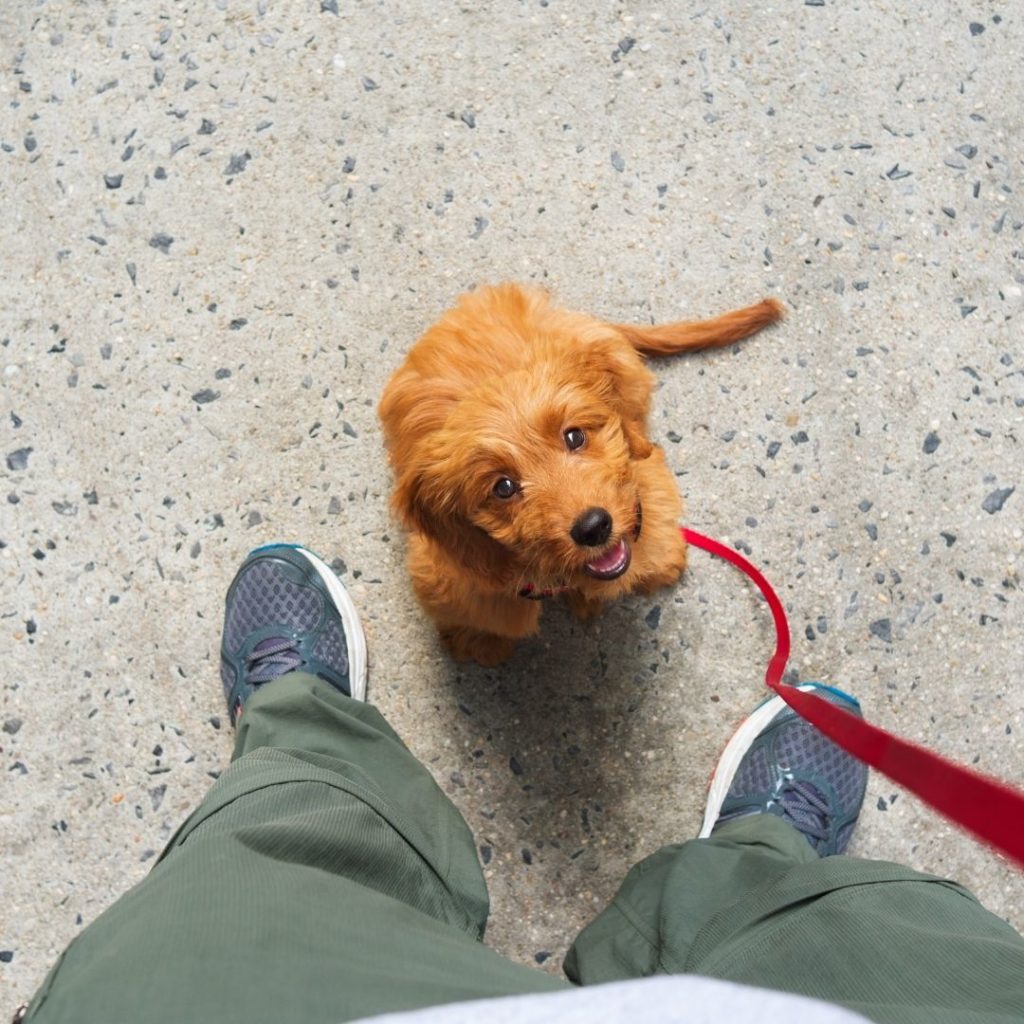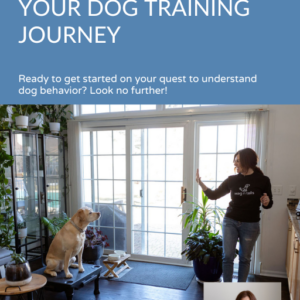An excerpt from the American Veterinary Society of Animal Behavior – AVSAB
When you bring home a dog there is so much to think about. Along with the breed and temperament choice right from the start, it’s important to consider who will care for your dog when you travel and while you are at work or play. Thoughts and decisions about regular grooming and veterinary care are just as important.
This is the person who will teach not only your dog, but the entire family! It’s amazing how much you can learn from online dog training. Remember, we’re teaching you how to teach your dog, so take your time when researching for the best in person or online dog training courses.
Your Dog is Counting on You
At Wag n Tails, we feel that your choice for an educator plays a vital role in playing out the future overall well-being of your pet. Your decision as to who to hire as your dog trainer should be thought of much like your choice of a coach, teacher, or mentor for your child.
Most of the time, we at Wag, are involved with our clients and their family for the lifetime of their dogs. Your dog trainer should give you the “warm fuzzies.” If you don’t feel just as good about your dog teacher, as you do your veterinarian, then you might want to refer to this list below.
The AVSAB Guidelines

The AVSAB recently shared its guidelines on training methods that veterinarians should follow when recommending a trainer to their patients. This is a huge breakthrough in our industry to have the help and backing from veterinarians who understand the importance of screening trainers before making that ever-important decision to recommend a trainer to their patients.
“Veterinarians are following guidelines designed to encourage their patients to avoid trainers who use methods that can lead to more problematic behaviors and impair an animal’s welfare.”
Learning and training should be fun for the entire family
- What kind of equipment does the trainer recommend?
If your dog’s school supply list includes choke collars, prong collars, or shock collars you should reconsider your choice of a trainer. - What type of behavior management recommendations are given?
If your homework entails kneeing the dog in the chest or abdomen, hitting the dog, pinching toes, forcibly holding the dog down against their will, or yanking on the collar, these are signs you should reconsider your choice for a dog trainer. - Does the trainer tell you to make your dog “submit” to you?
The AVSAB states that if a trainer recommends “alpha rolls”, “scruffing”, “helicoptering”, “choking” or any other painful or physical methods as a means of “training” or modifying behavior then you should be concerned and reconsider your choice in a trainer. - Is it possible to meet with the trainer or observe a class?
AVSAB states that you will want to interview trainers with whom you are going to affiliate. You can pre-screen trainers to interview by selecting those with a certification from an organization that espouses scientifically based, humane training techniques, such as CPDT, IAABC, KPA, or CDA. Wag n Tails is a long-time and proud member of the Association of Professional Dog Trainers, APDT, CCPDT, IAABC, AKC, and several other sound organizations. Look to see that the students are having fun! Are the pet parents in the class using happy voices and do you see lots of happy body language from the dogs? Or do you see tucked tails and miserable dogs? If you are not allowed to witness a trainer in action, you should reconsider your choice. - Trainers should not offer guarantees.
Due to the variable and often unpredictable nature of behavior, a trainer cannot and will not guarantee the results of training. A trainer can guarantee the satisfaction of the services offered, not the results. - Is the training school reward-based?
The AVSAB endorses training methods that allow animals to work for play, food, affection, etc. rather than the use of techniques that focus on using fear or pain. Choose a trainer who uses reward-based methods of learning with treats, toys, and play. Avoid trainers who advocate methods of physical force that can harm your pet such as hanging dogs by their collars or hitting them with hands, feet, or leashes.
Dogs Don’t Need to be Physically Punished
Research shows that dogs do not need to be physically punished in order to learn how to live in our human world. There are significant risks associated with using punishment such as inhibiting learning, increasing fear, and/or stimulating aggression. See AVSAB Punishment Position Statement on the American College of Veterinary Behaviorists website.
Punishment methods assume that animals always know exactly what humans expect from them and are willfully disobeying. When in fact, animals are often “disobeying” many times because people have accidentally reinforced the very behaviors they don’t care for, due to a lack of understanding of animal communication. Inevitably, this vicious cycle continues and the unnecessary cycle of homeless animals goes on and on and on.
Break the cycle with us. Spread the word about the importance of education and reward-based methods of learning and teaching.
Join us to learn much more at Wag n Tails. Take advantage of our virtual dog training classes where we cover learning theory and the A, B, C’ s of learning. We feel that understanding how dogs think and learn is the first step toward creating a successful bond with your dog. We’re here to help you create that relationship.
Join us! Check out our virtual learning course options here.
Local to Michigan? Take a group class! Learn more here.
About Wag n Tails Seminars
We offer seminars on a variety of topics from basic obedience to understanding how your dog learns and responds to cues. We also discuss how to properly use positive reinforcement in dog training and how to be consistent with rewards.
Our seminars are interactive and informative with plenty of hands-on activities. We discuss different dog behaviors and how to structure training around them. We also talk about how to deal with specific issues such as dog nutrition, your dog’s body language, enrichment, treat retreat, barking, aggression, and much more!
Learn more here.









